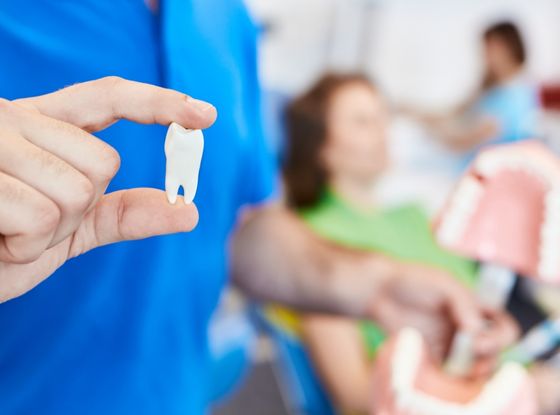
Is It Possible To Fracture A Tooth?
Trust our expert dental team in Parker, Colorado for reliable information on teeth health! Not only does our practice specialize in preventative care and treatments for all your family’s dental needs but we also prioritize educating our patients on the importance of proper oral hygiene. In this post we will cover one particular question – “Can You Fracture a Tooth?” We here at Green Dental Care see many cases involving chipped or fractured teeth, so if you have been experiencing similar issues it is important to act now. Read on as we discuss why tooth fractures happen and different ways they can be treated.
What is a tooth fracture and what causes it to occur
A tooth fracture is an unfortunate dental problem that many people may experience in their lifetime. This occurs when the tooth becomes cracked or broken due to various factors. Tooth fractures often result from biting hard objects, facial injuries, or dental decay. Tooth grinding, clenching, and age-related wear can contribute to tooth fractures. Fortunately, many tooth fractures are treatable with professional dental care. A tooth fracture can be fixed with the right treatment, restoring a healthy, beautiful smile.
How can you prevent a tooth fracture from happening
A tooth fracture is a painful experience that can be both costly and time-consuming to fix. Thankfully, there are steps that you can take to prevent it from happening in the first place. Care for your teeth with daily brushing, flossing, and regular dentist check-ups. You should also avoid biting hard objects, such as ice or candy, as they can cause damage to your teeth. Use a mouthguard for added tooth protection during sports or high-impact activities. Follow these tips to keep your teeth strong, healthy, and avoid tooth fractures.
Steps to take if you have already fractured a tooth
A broken tooth can be a scary and painful experience, but don’t worry! There are several steps you can take to fix the situation. First, rinse your mouth with warm water to clean the area. Apply a cold compress to your face to reduce any swelling or pain. If the fracture is small, your dentist may be able to use bonding to repair the tooth. However, if the fracture is severe, a crown or root canal may be necessary. It may seem intimidating, but remember that your dentist is there to help and provide you with the best treatment possible. With the right steps and proper care, your tooth will be on its way to a full recovery.
Different types of tooth fractures and their corresponding treatments
Our teeth are essential to maintain not just a beautiful smile, but also to ensure proper chewing and digestion. However, tooth fractures are a common issue faced by several individuals, causing discomfort and affecting their daily routine. Different types of tooth fractures have specific treatments to restore your teeth. From minor cracks that require simple bonding or filling to severe cracks that may require root canal treatment or even tooth extraction, dentists have various options to meet your needs. Overcome tooth fractures with the right treatment and get back to smiling!
Common dental procedures used for treating fractured teeth
Coping with a fractured tooth can be unsettling, but common dental procedures offer effective treatment. Dental bonding repairs fractures using a tooth-colored resin, restoring the natural look of the tooth. Another option is a dental crown, which covers the entire tooth and provides added protection and support. In some cases, a root canal may be necessary to remove damaged tissue and prevent further damage. Your dentist can effectively treat a fractured tooth, ensuring a healthy and functional smile.
The importance of regular check-ups and preventive care for good oral health
Oral health is vital for overall well-being, and preventive care is key to good dental hygiene. Regular check-ups help identify potential issues before they become serious problems. Prevention-oriented oral care can reduce the risk of oral diseases, decay, and gum issues. Plus, early detection can save you time, discomfort, and often even money. It’s vital to implement a regular dental check-up routine to keep your healthy and confident smile shining bright. Investing time in preventive dental care pays off for a big and beautiful smile.
Contact Us Today
Care for your teeth for a healthy smile and be mindful of the risks of fractures. Preventive measures like brushing and avoiding hard foods protect teeth from injury. Fractures, if untreated, can lead to serious dental issues, but various treatments can restore damaged teeth. Trust your dentist for repair or preventive care to maintain your oral health. Nothing compares to the importance of having a healthy smile that will last you a lifetime! Contact us to schedule a consultation today.



